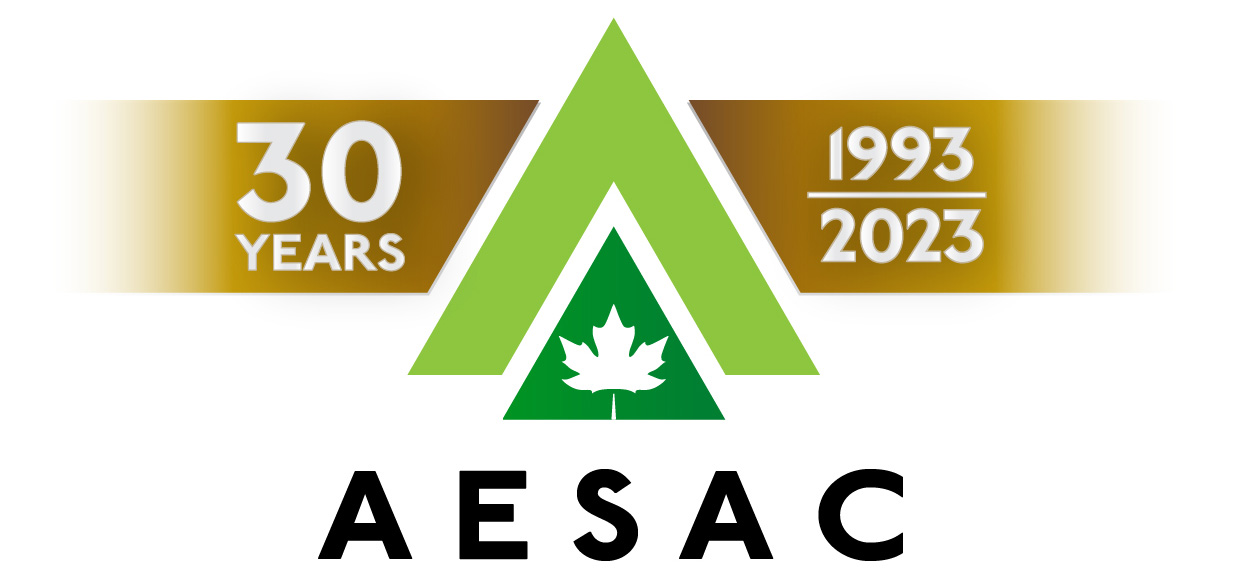- Home
- Training Courses
- Membership
- About Us
- Instructors Blog
- December 2023: All I Want For Christmas
- November 2023: ESA Report Reviews
- October 2023: Can AI Write an ESA Report?
- September 2023: Getting Paid... or Not
- August 2023: Take Me Back...
- July 2023: To Bid or Not To Bid
- June 2023: Selecting a Supplier
- April 2023: Phase 1 Problems, Part 3
- March 2023: Phase 1 Problems, Part 2
- February 2023: Phase 1 Problems, Part 1
- January 2023: Working Outside in Winter
- 2022 Blogs
- 2021 Blogs
- December 2021: Asbestos in your Home
- Sept 2021: Dirty Jars And Other Bad Things… Part 2
- August 2021: Dirty Jars And Other Bad Things… Part 1
- July 2021: How do you want that drawing to look? Part 2
- June 2021: How Did You Want That Drawing To Look? Part 1
- April 2021: So You Need a RSC... Part 2
- March 2021: So You Need a RSC... Part 1
- February 2021: What's In Your Toolbox? Part 2
- January 2021: What's In Your Toolbox? Part 1
- 2020 Blogs
- December 2020: A Day in the Life, Part 2
- November 2020: A Day in the Life, Part 1
- October 2020: Exploring Your Career Path
- September 2020: So You Want To Start Your Own Business - Part 2
- August 2020- So You Want to Start Your Own Business
- June 2020: Effective Communication
- May 2020: Tips For Working From Home
- April 2020: Conducting ESA’s During a Pandemic
- March 2020: It's Not Easy Being Green
- February 2020: Looking Ahead; Bold Predictions for the Next Decade
- January 2020: Looking Back; A Decade in Review
- 2019 Blogs
- 2018 Blogs
- 2017 Blogs
- 2016 Blogs
- 2015 Blogs
- Find an AESAC Member
Menu- Home
- Training Courses
- » Training Courses
- » Webinar Series
- » Calendar of Events
- » Course Registration
- » Course Instructors
- » Testimonials
- Membership
- » Become a Member
- » Certifications
- » Membership Search
- » Update Member Profile
- » Members Only
- » » Member Login
- » » Membership Renewal
- » » Create/Change Password
- » » CESA Certification Application
- About Us
- » About AESAC
- » Course Instructors
- » Contact Us
- Instructors Blog
- » December 2023: All I Want For Christmas
- » November 2023: ESA Report Reviews
- » October 2023: Can AI Write an ESA Report?
- » September 2023: Getting Paid... or Not
- » August 2023: Take Me Back...
- » July 2023: To Bid or Not To Bid
- » June 2023: Selecting a Supplier
- » April 2023: Phase 1 Problems, Part 3
- » March 2023: Phase 1 Problems, Part 2
- » February 2023: Phase 1 Problems, Part 1
- » January 2023: Working Outside in Winter
- » 2022 Blogs
- » » December 2022: Advice To My Younger Self
- » » October 2022: Pre-Purchase Due Diligence
- » » Sept 2022: Words Matter
- » » July 2022: Let Us Come To You
- » » April 2022: Due Diligence
- » » March 2022: Time Management
- » » February 2022: Spinning Augers... Part 2
- » » January 2022: Spinning Augers... Part 1
- » 2021 Blogs
- » » December 2021: Asbestos in your Home
- » » Sept 2021: Dirty Jars And Other Bad Things… Part 2
- » » August 2021: Dirty Jars And Other Bad Things… Part 1
- » » July 2021: How do you want that drawing to look? Part 2
- » » June 2021: How Did You Want That Drawing To Look? Part 1
- » » April 2021: So You Need a RSC... Part 2
- » » March 2021: So You Need a RSC... Part 1
- » » February 2021: What's In Your Toolbox? Part 2
- » » January 2021: What's In Your Toolbox? Part 1
- » 2020 Blogs
- » » December 2020: A Day in the Life, Part 2
- » » November 2020: A Day in the Life, Part 1
- » » October 2020: Exploring Your Career Path
- » » September 2020: So You Want To Start Your Own Business - Part 2
- » » August 2020- So You Want to Start Your Own Business
- » » June 2020: Effective Communication
- » » May 2020: Tips For Working From Home
- » » April 2020: Conducting ESA’s During a Pandemic
- » » March 2020: It's Not Easy Being Green
- » » February 2020: Looking Ahead; Bold Predictions for the Next Decade
- » » January 2020: Looking Back; A Decade in Review
- » 2019 Blogs
- » » November 2019
- » » September 2019
- » » August 2019
- » » July 2019
- » » May 2019
- » » March 2019
- » » February 2019
- » » January 2019
- » 2018 Blogs
- » » November 2018
- » » October 2018
- » » September 2018
- » » August 2018
- » » July 2018
- » » June 2018
- » » May 2018
- » » March 2018
- » » February 2018
- » » January 2018
- » 2017 Blogs
- » » April 2017
- » » June 2017
- » » August 2017
- » » September 2017
- » » December 2017
- » 2016 Blogs
- » » October 2016
- » » September 2016
- » » August 2016
- » » July 2016
- » » June 2016
- » » March 2016
- » » January 2016
- » » December 2016
- » » November 2016
- » 2015 Blogs
- » » April 2015
- » » July 2015
- » » September 2015
- » » October 2015
- » » December 2015
- Find an AESAC Member
Last month I wrote about some of the important things to plan for if you want to start your own business. This moth I continue that discussion with more thoughts on the pitfalls and successes you may experience along the way.
Build Your Team
As a personal corporation or sole-proprietor you may think you have it all covered by yourself. In reality you need to surround yourself with a really good team of professionals and support staff – just like the big company you used to work for! A good network takes a long time to acquire and should include not just colleagues, clients and suppliers, but mentors and advisors. You’ll need a lawyer to help you set up your company, provide legal advice and (I suggest) review some of your contract language. You’ll likely spend a lot more time writing and reviewing contracts, proposals and such (which BTW is usually un-paid time). A book keeper and accountant are a must to keep you on the right side of the tax man and (hopefully keep some of your own money at the end of the day). You will also likely need to establish a really good relationship with your bank manager if any kind of loan, bank overdraft or other financial assistance is needed. Be prepared that everything from bank fees, credit cards to phone bills and insurance always cost more for a business than for personal. You will need a network of like-minded colleagues who can provide assistance and back up if you get busy; land a big project; or just want to take a holiday. All the support staff you were used to working with (admin, secretarial, drafting, field labour. IT, HR. etc.) will now be DIY or outsourced, so you need to plan ahead and build a good team.Maintain Good Habits
If you are a one or two-person operation, you will have to look after every aspect of your business – or pay someone else to do some of those tasks. Working for your self requires a lot of discipline in getting clients, completing projects on time, looking after the bills and invoicing, chasing down late payments; even just doing basic day to day organization. I find it helpful to make and upgrade daily, weekly and monthly ‘to-do’ lists. It helps keep me on track, organized and (mostly) on time. It also gives a sense of accomplishment when I physical cross-off a big project from my list, and wipe it off the project white-board. There is also a huge feeling of satisfaction when a client responds positively – and pays a big invoice promptly. Good clients really make the job easier and more rewarding (shout-out to my great clients). But in order to get great clients, you need to provide great service; the kind of service your client will brag about to their contacts. If you work hard to provide superior service and great value you are more likely to get repeat and referral business – that’s the ‘sweet spot’ we are all aiming for. This takes expertise, attention to detail, honesty, integrity, time management and excellent communication – all the time – for every task, every client, and every project. A good or great reputation takes a career to build, but can be lost overnight with one bad project or disgruntled client.
I don’t want to sound too negative; I love running my own company, but it’s a lot of work (and a lot of reward) and personally I can’t imagine doing anything else. But it’s not for everyone, and if you are thinking of trying it and want to be successful (not just financially, that is only one measure of success), you need to be fully aware of everything that will be involved, my comments are only a small starting point for consideration.Till next month - keep healthy, stay safe, and be good to each other!
Bill Leedham, P. Geo., CESA
Bill is the Head Instructor and Course Developer for the Associated Environmental Site Assessors of Canada (www.aesac.ca); and the founder and President of Down 2 Earth Environmental Services Inc. You can contact Bill at info@down2earthenvironmental.ca
Training Courses
Membership
About Us
Contact UsCopyright (c) 2024 Associated Environmental Site Assessors of Canada; AESAC Inc.



